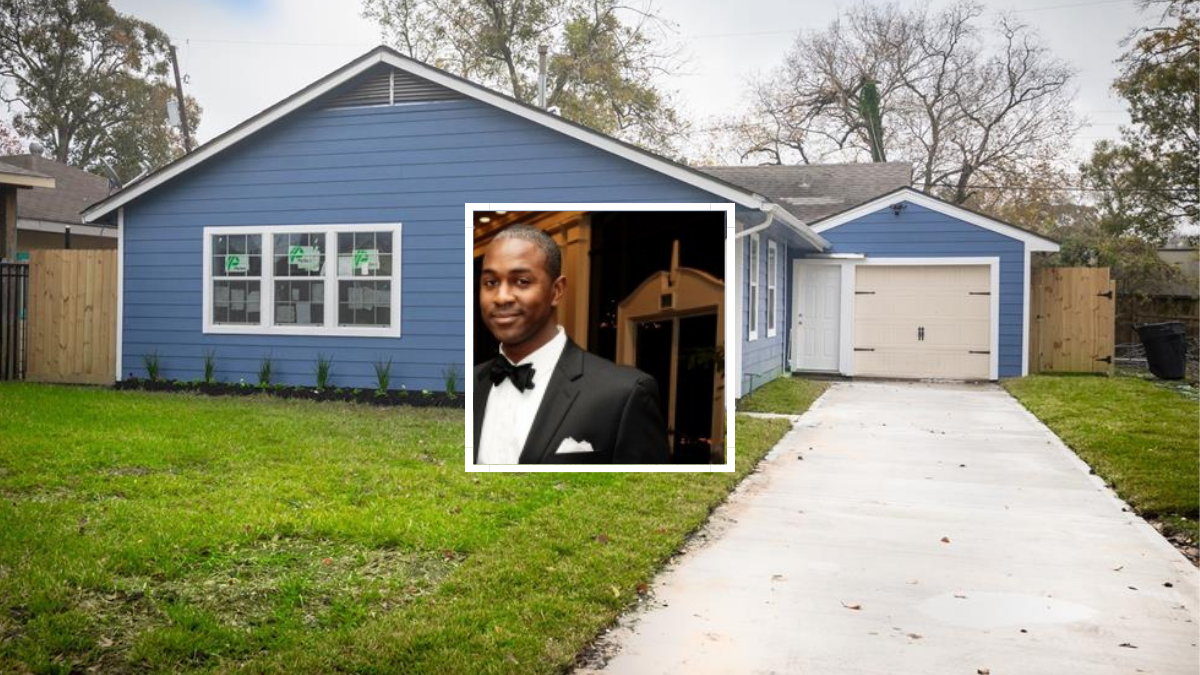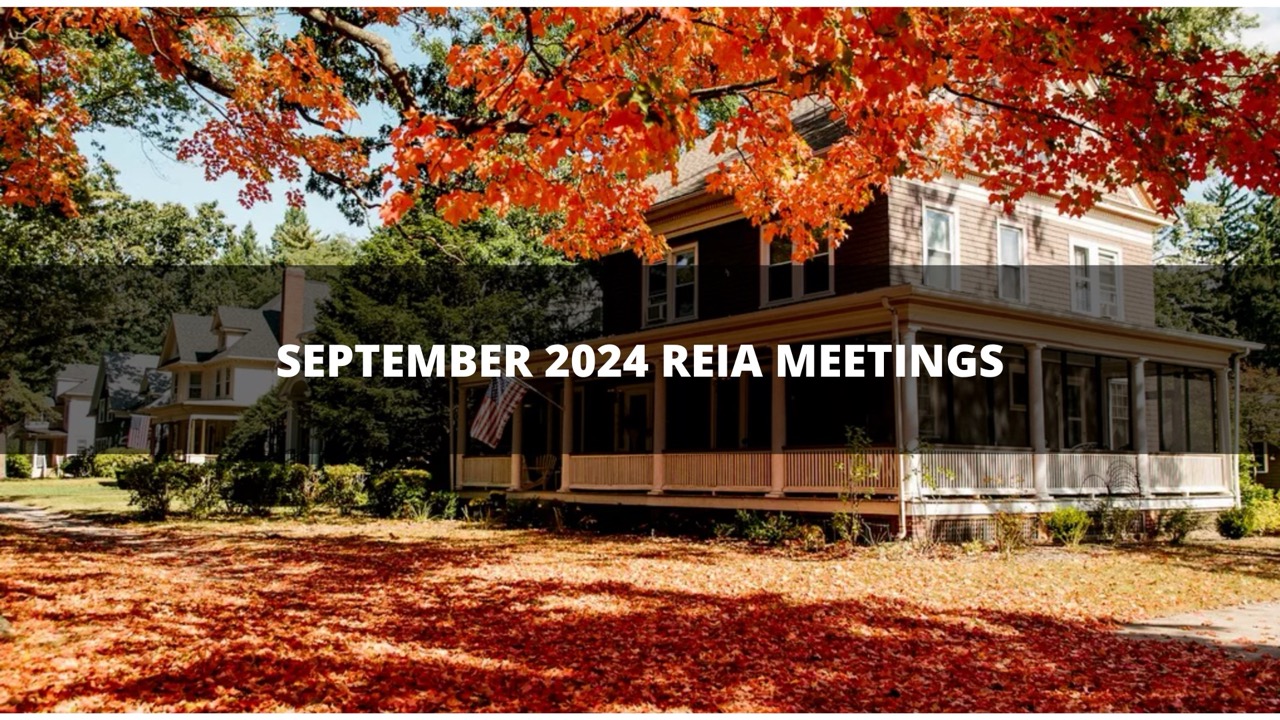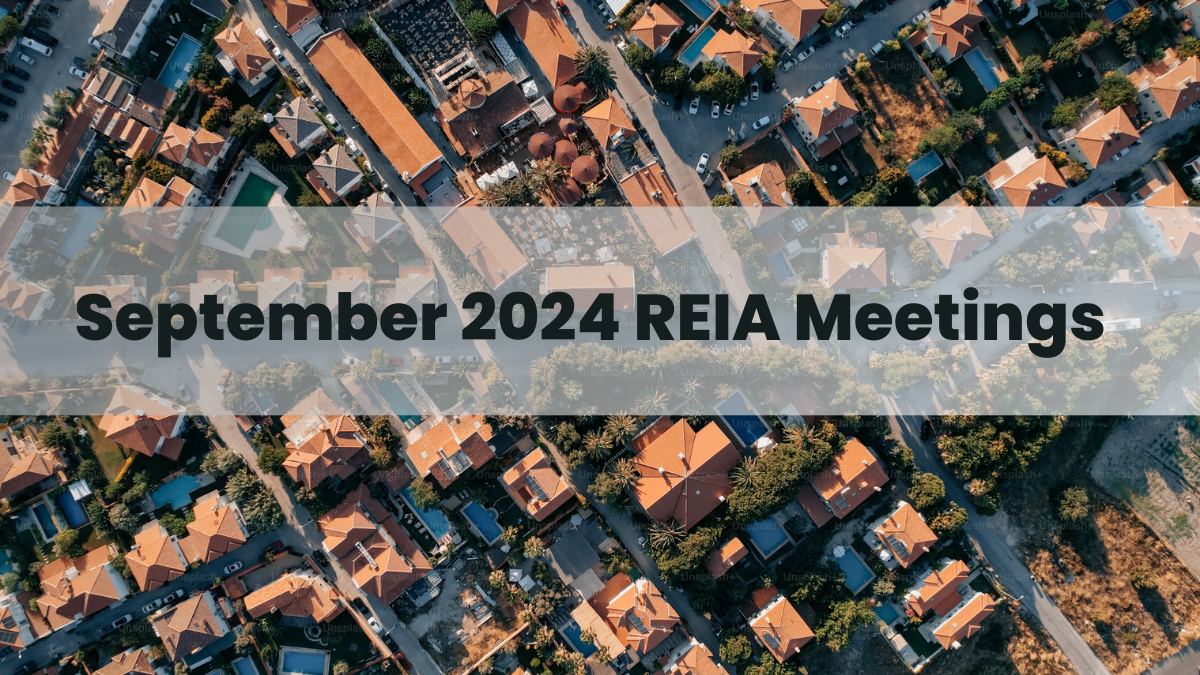A Fix and Flip Journey: Jeremy Hicks’ Success Story
In our most recent success story, Houstonian Jeremy Hicks recounts how MyHouseDeals was able to help him transform a once battered and beaten old home into an impressive fix and flip project. While he had taken on some small DIY projects in the past, this was Jeremy’s first time attempting to flip a property from the ground up. Thanks to his Premium Elite Membership, Jeremy was able to find the perfect property to begin this new journey.
Despite his ultimate success, Jeremy experienced several challenges and roadblocks before he was able to perfect the project. However, with hard work and perseverance, Jeremy was able to stick the landing and accomplish his goals with a net profit of $55K.
Topics Include:
- How to find and secure the perfect deal for your investing strategy
- Putting in the work: Jeremy’s transformation process and roadblocks along the way
- Lessons learned: Budgeting property and finding good supply lines
Here’s a quick breakdown of the deal Jeremy found on MyHouseDeals:

You can listen to the audio here:
Or you can watch the video here:
Tell us a little bit about your process. What kind of deal were you looking for and how did you spot this specific deal?
I became interested in doing a fix and flip after going through a divorce which left me looking for a solid way to try to recoup. Having a background in real estate, I wanted to try something new that I knew would be a better project financially and something new to add to the books. Once I knew what kind of deal I wanted, I did a quick Google search for cheap properties around the Houston area and came across the MyHouseDeals website, where I then began looking for properties that could use a good flip.

How long were you on MyHouseDeals looking for properties before you found this particular one? Did you look for new deals every day? How often were you checking the website for that?
Before I became a Premium member, I was looking for a few months kind of sporadically. There would be times where I was so excited to get started on my project that I would check it every few days, and then sometimes I would wait a week or so. However, once I became a member, it took me about three months to find the perfect property, and I knew my searching had come to an end.
Tell us about the deal for this particular one. Were you looking for a particular type of property, a certain configuration, or a particular zip code, or were you focused more on the numbers and wherever it was? If the numbers made sense, then that was a good deal for you?
Definitely choice B; I was just looking at the numbers. Houston is an incredibly large city where it takes at least 30 to 45 minutes to get anywhere in the city unless you’re going somewhere in the same neighborhood. With that being said, I wasn’t really concerned about the distance, rather, it was more or less about the numbers. I ended up finding some lucrative properties on the south side of town that were partially remodeled, but I ended up having to do a lot of rework, so that kind of messed up the budget, and decided not to pursue these properties after all.
That’s awesome, Jeremy. What kind of work did you have to put into the property you ended up choosing? Was there structure work? Tell us more about that.
I was looking for something that was either down to the studs or something that I could just put a little bit of work into just to get it rent-ready or sale-ready. That’s when I found something that could work; it pretty much had all the sheetrock is done, a few electrical problems, and all new plumbing. However, as the trades came in, it became a nightmare. Only some of the HVAC had been started, so I assumed that the gas was fine for the heat. So, to answer your question, no, I ended up having to level the foundation because it was sinking in so many places, crowning in the middle, and the edges were down a little lower than I would have liked.
Next, I had to get the foundation done, where I discovered termite damage that was much more severe than I had expected, so that was a roadblock that needed to be addressed before I could move forward with other renovations. Additionally, the entire garage and back corner of the house had to be completely re-studded. After that, there was just the standard HardiPlank around the house and some decent landscaping left to be done.
Have you done a project of that scope before, Jeremy?
No, everything I had done in the past was just small DIY stuff on the rentals I had before. These properties were already rent-ready, so I was just making small upgrades like adjusting the lighting fixtures and updating the bathrooms. I had never done a fix and flip from the ground up, so this was definitely a new experience for me.
Is that what made you want to go from those projects, which some would say are much easier? Because you’re just either doing something that’s very cosmetic, quick, DIY as you said, putting it back on the market versus going for something that would involve a crew, multiple contractors, that would require a lot more work. What was your thinking behind that?
As I mentioned before, it was really about the money. I was in a slightly desperate position and I was trying to recoup as much money as I could, as quickly as possible. With rentals, you can’t recoup the capital unless you sell, right? You can’t recapitalize it easily. So, I was thinking, “Well, worst-case scenario, I’ll just have it for two or three months after I finish and then be done.” However, as you probably know, sometimes things don’t go according to plan, but that’s how you learn. Everybody has a plan until that plan has its own plans and takes you in a completely different direction. So, I took a few blows and those three months grew to be about eight or nine months. Fortunately, it eventually came together and I was able to sell it.
That’s awesome, Jeremy, because as we talk, things are even tighter in terms of materials/labor. So the fact that you’re able to get it done and sell it by March, that’s awesome. What are some lessons that you learned from taking on a more complex project that will help you with your next one?
I learned quite a few lessons from my first fix and flip. Primarily, I learned how to budget and what that entails. These projects usually involve hard money, and there’s definitely a right and wrong way to use hard money. So, I would say the biggest lesson learned is to just make sure you budget properly because, in the worst-case scenario, you’ll have to sell for less than you were hoping. However, if you use your hard money properly, then you’ll stay within budget and you won’t have to use your own money, which is the overall goal. Essentially, I learned a lot about money and that will definitely help me finance my next project.
My second biggest lesson learned was making sure that you have good supply lines, whether that be contractors or being close to an ACE Hardware/Home Depot so you have access to any materials you may need. Another tip I found helpful: if one place is out of stock, make sure you have a backup that’s not too far.

For cost estimation for the repairs, I imagine you did some work before you closed on the property to have an idea how much you’d be in for. Tell me about that process. Did you use an inspector? Did you have contractors visit and bid on the work? Did you estimate that yourself? Walk us through that process.
I made almost all the estimates myself at first, but then I had a second pair of eyes re-estimate everything for me because initially, I was just trying to find ways to save money, and that’s the absolute wrong way to approach a project like this. I came to find that there are no shortcuts in this game, so you might as well be thorough.
Did you end up spending more down the line?
I did. For instance, I told the electrician, “It’s already sheetrocked, but break whatever you need.” And he took that as, “Okay, well we’ll just do a patch job.” So, another important lesson is to ensure that you have everything, including the scope of work, documented. What I meant to say was, “Do whatever is the cheapest.” He then probably would’ve suggested rewiring the entire thing. And, of course, I would’ve been okay with that because he had to rewire the majority of it anyway so that it would pass code. These are just a handful of the lessons I learned from just working with contractors.
You mentioned working with a hard money lender and how your timeline was extended from originally, maybe being two or three months to eight, nine months. So tell us about that relationship. How did you go about securing funding for this particular deal and how were you able to renegotiate the terms, if at all, when you figured out the project extended beyond your original timeline?
I’m glad you brought that up because I actually did try to renegotiate, but the lender wouldn’t budge. The appraisal person who helped me suggested floating the deal with credit cards, so I immediately followed his advice and used that to finish the project.
So, the lender you work with, was he helpful in any way in managing those contractor relationships or the timeline of the actual rehab process?
Well, I actually liked doing that part myself. However, as for my interactions with the contractors, I would submit the reimbursement form and then they would reimburse me based on the work that was done. It was completely hands-off with the contractor, so I was able to manage them directly rather than having somebody who was already juggling many other tasks also try to manage the contractors. So, that was one thing that I did like because it gave me a sense of independence and control over the finished product.
That’s fantastic. So walk us through the numbers: how much did the deal cost you for your initial offer? How much did you put in repairs and what was the final ARV when you listed it?
The purchase price was $75K, the original budget was about $40K, and I put in an additional $30K to $40K of my own money. So, obviously, I could have made a much higher profit had I budgeted properly, but that’s a lesson that I’ll be able to apply in the future. The ARV appraisal came in at about $177K and the sales price was $168K, so it was $168K minus the selling/broker’s fees and everything for the agent, bringing it up to $115K. Finally, I was looking at about $30K minus the brokerage fees from the closing costs.
Very good, that’s exciting. What are you in for now? Are you looking for new deals? What kinds of deals, what’s next for you?
I think I want to continue doing fix and flips because off-market deals get a lot more equity. So, I think I want to continue, but as of right now, I’m just going to focus on finding off-market deals outside of wholesalers as a way to kind of recoup my capital and build a bit of a bank. Then, in the future, I’d like to take those properties and rent them out.
Okay, very good. What would be your advice to investors who are watching us, who are on a similar path? They haven’t done their first deal yet. They’re really motivated. They’re looking for the right deals, but it hasn’t happened yet for them. What would you tell them?
Number one, talk to family and friends because wholesalers have to make a living too. But, if you can get it directly and cut out the middleman, go with that option first. Second, it doesn’t cost a lot of money when you use a hard money lender. The biggest challenge is to just make sure that you budget both effectively and efficiently.
Summary
Jeremy Hicks was looking for an effective way to recoup from his divorce and earn some money through real estate, so he decided to give home-flipping a shot. Through extensive research, he was able to secure a property through MyHouseDeals and embark on what would soon become his first successful fix and flip project.
He soon realized the value in a Premium Elite membership that allowed him to see properties much sooner. Through a lot of time, effort, and hard work, Jeremy transformed the property into a profitable investment through which he gained a hefty net profit of $55K. Jeremy stumbled through a few unforeseen challenges along the way, but he encourages anyone who is interested in doing something similar to persevere by budgeting properly and finding a good supply line. This may have been Jeremy’s first-ever fix and flip, but it won’t be his last. He is eager to continue finding off-market deals and transforming them into lucrative opportunities.
We’d like to thank Jeremy for taking time out of his busy schedule to chat with us and share his experience. We wish Jeremy continued success and happiness!






